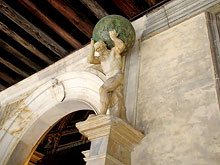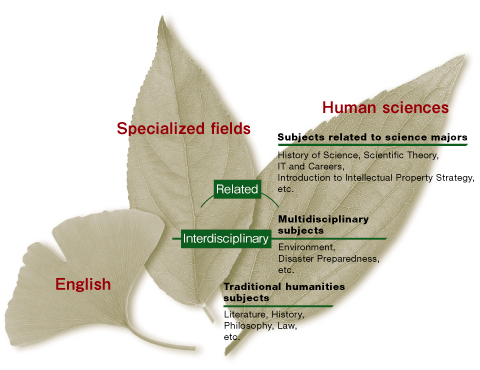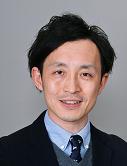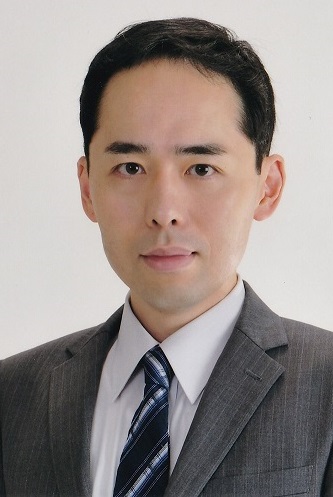Humanities and social sciences − two major disciplines alongside the sciences


- What kinds of subjects do human sciences comprise?
- Those subjects other than English and the specialized subjects of the Faculty of Science Division I are broadly referred as the human sciences. Subjects other than foreign languages and physical education, i.e., humanities and social sciences, are introduced here.
- Are human sciences “arts” subjects?
- As well as traditional “arts” subjects, such as Literature, History, Philosophy, and Law, the Department offers specialty-related subjects such as History of Science, Scientific Theory, IT and Careers, and Introduction to Intellectual Property Strategy. Subjects requiring interdisciplinary approaches, such as Environment and Disaster Preparedness, are taught as “multidisciplinary subjects” by instructors from both sciences and arts so that they can be approached from different perspectives.
- Why should students learn about human sciences?
- No matter what they major in, the ultimate theme of all college students when they become full-fledged members of society is “humans.” Only if they have a broad knowledge of such things as how the government and the economy work, and the diversity of cultures around the world, can they make appropriate judgments when they encounter complex problems in the real world. What you learn through these subjects may not appear to be of immediate use, but it all contributes to broadening and deepening your character.
- Are human sciences rote-learning subjects?
- If you have such an image toward human sciences, it is because of “social studies” subjects at high schools. Since high-school teachers do not have enough time to teach, they have no choice but to just list facts for their students. However, human sciences at college, like hard sciences, explore their subject matters through the application of logical and empirical principles.
- How many staff teach human science subjects?
- Taking into account both full-time staff in the Faculty of Science Division I and staff from other faculties, there are seven instructors in charge. Also four full-timers from other sections of the department, i.e., language education and physical education, participate in teaching human sciences. Including former staff now employed on short-term contracts and part-time lecturers as well, the total number of teaching staff amounts to more than 20, which makes it possible to cover diverse ranges of human sciences. Profiles of the full-time teaching staff are as follows.
-

- Professor Hisayoshi Miyatake
- Intellectual property・Media studies


- 教授 Mitsuyoshi Hiratsuka
- Intellectual property


- Professor Kimiaki Suzuki
- Intellectual property


- Associate Professor Kiyoshi Jinno
- Law, Constitution of Japan

- My main research focus is on the history of donations in Japan, and my secondary research involves the thought of jurists and legislators in the modern period in Japan.

- Associate Professor Kazuko Takeo
- Educational psychology


- Junior Associate professor Satoshi Yamanaka
- History of Modern Europe, 20th Century European History

- My research focuses on diverse policies to innovate the habit of the French people, adopted during the French Revolution (1789-1799).

- Junior Associate professor Tomoko Matsumoto
- Politics

-

College education of humanities and social science subjects has traditionally been a combination of lectures, taught non-interactively in large classrooms, and seminars, which are conducted interactively in small groups through discussion and the presentation of research. The aim of these seminars is to develop debating skills and independent learning attitudes.

